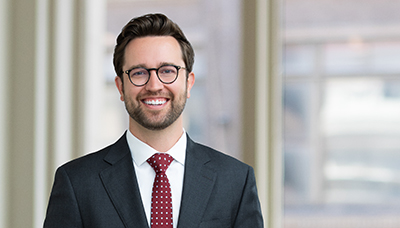Highlights
The U.S. Department of Health and Human Services issued an unfavorable opinion addressing physician-owned joint ventures
The agency determined the arrangement posed a significant risk of overutilization or increased costs to federal health programs because multiple streams of revenue could corrupt medical decision-making
The opinion reiterates the HHS-OIG’s long-standing position against certain “carve out” arrangements in joint ventures
The Office of Inspector General of the U.S. Department of Health and Human Services (HHS-OIG) recently issued Advisory Opinion No. 23-05 regarding a turnkey arrangement. The arrangement involved an intraoperative neuromonitoring (IONM) service provider that would offer its surgeon referral sources the opportunity to form and own a turnkey IONM business managed and operated entirely by the IONM service provider and its affiliates.
The HHS-OIG concluded on Aug. 18 that the proposed arrangement, if undertaken with the requisite intent, would generate illegal remuneration under the federal Anti-Kickback Statute (AKS) and constitute grounds for sanctions under the HHS-OIG’s exclusion authority and the civil monetary penalty provisions of the Social Security Act.
IONM monitors a patient’s nervous system during surgery. Like other ancillary services, IONM has both a technical and a professional component. A neurophysiologist performs the technical component within the operating room, while a neurologist performs the professional component (often remotely). Hospitals and surgery centers contract with IONM providers to provide IONM at their facilities. If a surgeon believes IONM is indicated, the surgeon will contact the IONM provider who then schedules the IONM services with the facility. The IONM provider then bills the technical component to the facility, and the neurologist bills the patient or third-party payor for the professional component.
Under the proposed arrangement, an IONM service provider and a physician practice under a management agreement would offer existing surgeon referral sources the opportunity to form and own a turnkey entity that would a) engage the service provider under a billing services agreement to provide all billing, collection, and administrative services related to the IONM business, and b) engage the practice to provide or arrange for the services of neurologists and neurophysiologists.
The new company would then contract directly with facilities under an IONM services agreement, under which it would provide (or arrange for the provision of) the professional and technical components of IONM. The service provider (on the new company’s behalf) would bill the facilities for the technical component and the patient or third-party payor for the professional component.
- The requesting service provider further certified the following facts:
- The services provided by the requestor and the practice on behalf of the new company would constitute virtually all of the day-to-day requirements to operate an IONM business
- The requestor would limit the proposed arrangement in specific situations where existing surgeon clients would otherwise adopt the same model offered by a competitor
- The requestor would make substantially less profit under the proposed arrangement than under its existing model due to losing the professional component of IONM and the various discounts offered under the professional services agreement to remain competitive in the marketplace
- The requestor would prohibit the surgeon owners from referring beneficiaries of federal health care programs to the new company, but could not guarantee compliance
- The surgeon owners would likely refer federal health care program beneficiaries to the requestor (for the technical component of IONM) and the practice (for the professional component of IONM)
The HHS-OIG concluded the proposed arrangement would likely implicate AKS because at least one stream of income (the opportunity to generate a profit) could not fit within an AKS safe harbor. Relying on former guidance on contractual joint ventures, the HHS-OIG determined the proposed arrangement could be used as a vehicle to induce or reward referrals of services from the surgeon owners to the new company, the requestor, or both.
Key Takeaways
The HHS-OIG’s opinion reiterates a long-standing position that contracting parties cannot cure a suspect joint venture by “carving out” referrals of items or services for which a federal health care program may reimburse. Absent safe harbor protection, the HHS-OIG said it evaluates the totality of the circumstances to determine whether remuneration flowing through the joint venture is a disguised payment for referrals of federal health care program business outside of the joint venture.
The advisory opinion also outlined factors present in the proposed arrangement that, when taken together, increased the risk of fraud and abuse. Physicians and management companies should evaluate their existing relationships and future opportunities under this framework. If any streams of remuneration fall outside of safe harbor protection, the parties to the joint venture should consider whether:
- The physician-owners would have any reason to enter into the joint venture other than the opportunity to make a profit (e.g., improve patient care coordination or quality measures)
- The party in a position to receive referrals would be giving up a portion of its profits from such referrals to the party making them
- The financial incentives inherent in the joint venture could corrupt medical decision-making and result in overutilization or patient steering
- Physician-owners of a new joint venture would have meaningful participation in the business’s day-to-day operations
- Physician-owners are expanding into a related line of business requiring no up-front investment and little downside risk
- The new joint venture’s success would depend on referrals from the physician-owners
Given the volume of HHS-OIG guidance on this topic, many wonder whether the requestor actually desired to proceed with the proposed arrangement or if its request for an advisory opinion was no more than a competitive tactic to stamp out a new threat to its existing business model. For more information, please contact the Barnes & Thornburg attorney with whom you work or Jason Schultz at 574-237-1210 or jason.schultz@btlaw.com or Joel Benson at 317-231-7801 or joel.benson@btlaw.com.
© 2023 Barnes & Thornburg LLP. All Rights Reserved. This page, and all information on it, is proprietary and the property of Barnes & Thornburg LLP. It may not be reproduced, in any form, without the express written consent of Barnes & Thornburg LLP.
This Barnes & Thornburg LLP publication should not be construed as legal advice or legal opinion on any specific facts or circumstances. The contents are intended for general informational purposes only, and you are urged to consult your own lawyer on any specific legal questions you may have concerning your situation.














